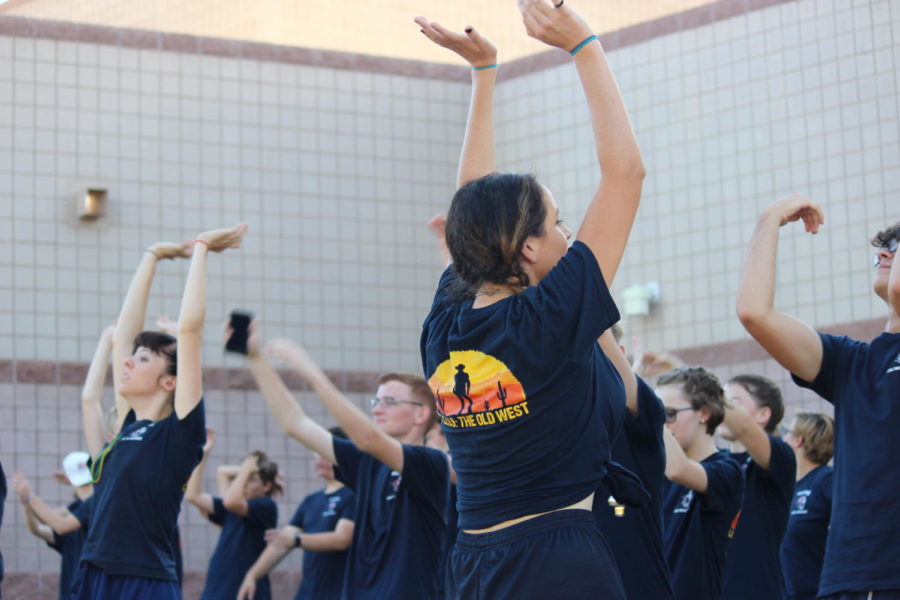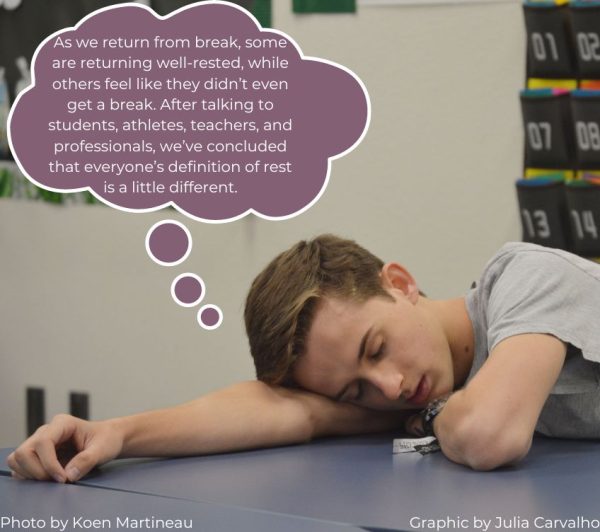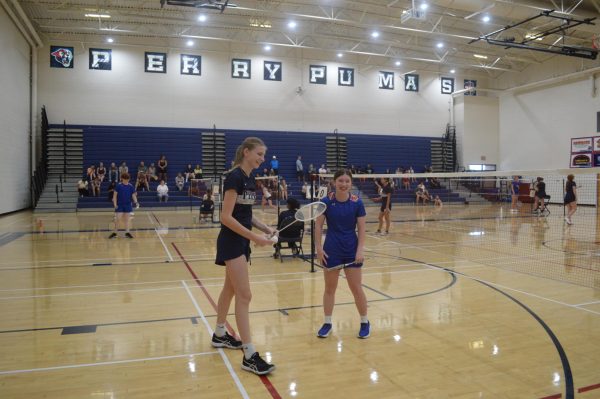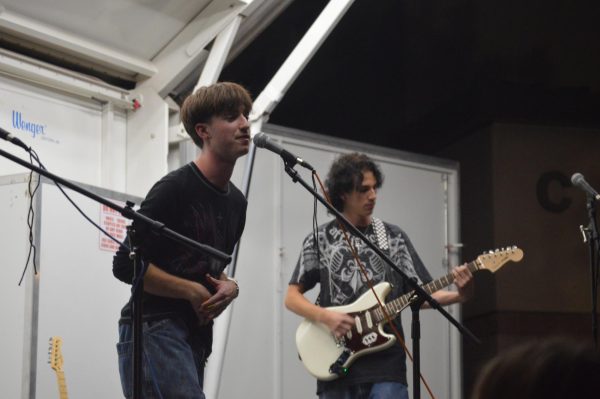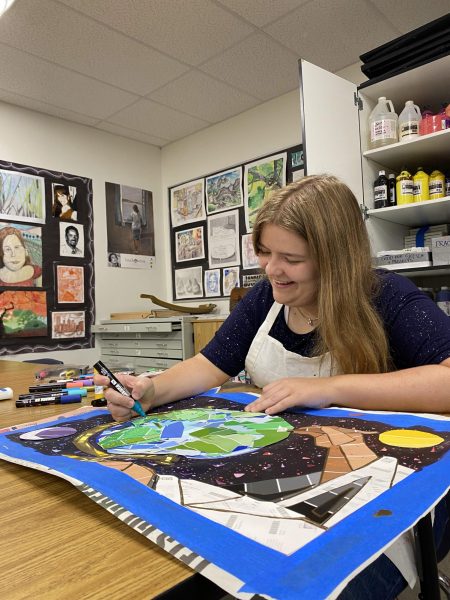Regimented plan
15 hours of practice for a seven minute show
The Regiment warms up before playing at Friday’s game
The Puma Regiment is one of the largest, hardest-working programs on campus. This group of 101 students compete across the state, perform during all home varsity football games, and get the Puma Nation hyped up on a regular basis.
Throughout the course of a typical week, the students dedicate 15 hours of work into their halftime show titled “Lawless: The Old West.” The show is only seven minutes long, but the work it takes to perfect the routine is tedious, with students working morning, noon and night, six days a week.
Monday
Marching band has zero hour five days a week where they work on various skills. Most Mondays, director Brandon Kiesgen — who is in his eighth year at the helm of the Regiment — takes them to the gym to work on dance and the fundamentals of body movement.
“As visual performers, learning how to move your body makes a big difference in the way that you move together with consistency,” he said. “It also helps with things you can’t see like time control, pulse control, and flexibility. I think people think of marching band as ‘just band’, but it’s band while moving and looking good at the same time.”
Tuesday
In addition to zero hour, students have practice from 5-9 p.m. on Tuesdays. The regiment rarely has access to the game field at John Wrenn Stadium, so they take advantage of every minute they’re on the field.
Keisegen sais in order to get all 101 members in the right spot at the right time, the Regiment has to develop muscle memory.
“In order to do all the formations,” he said, “we have to have a field that we can see all the different shapes that band’s in. Each performer has to memorize their spots, of how to get from point A to point B.”
Wednesday
On Wednesday, zero hour serves as a study hall to get students caught up on schoolwork. “[The students] are always slammed with other responsibilities like homework.” he said. “For me it was a trade off — this time in the morning would be better served to focus on schoolwork that you missed because of practice.”
Thursday
Students have both zero hour and practice after school until 5:30 p.m. “We never leave school,” sophomore Tanner Shell joked. The regiment is back out on the field, working in individual sections, and then coming together to do a complete runthrough of the show.
Friday
Occasionally, the Regiment will start their day touring the school, playing various songs for students as they arrive to school. At the end of the day, band members are free to leave campus, but they must report back by 4 p.m. when they have meetings, eat dinner, warm up, and get dressed.
The warm-ups are more than just tuning their instruments. It looks like a routine from a fitness video more than a marching band; they do jumping jacks and a complete set of static and dynamic stretches much like the football players do to prepare for their game.
“[Our show] is very physically demanding,” Kiesegen said. “If you can imagine running around the field for seven minutes, playing an instrument at the same time, a lot of which requires you to use your air. You’re not breathing, you’re playing, but you’re running around. Being in shape is very important because of stamina. Just like if you run a mile in 10 minutes, it’s pretty exhausting.”
After warming up, the students headed back to the band room to zip into uniform. The room is filled with laughter and excitement, nervous anticipation and uneasy faces — it’s like a big party. Finally, they march over to the stadium to play.
The Regiment kicks off the game, playing the national anthem. Throughout the game, the students play many songs that are coordinated with pom and cheer’s routines. Halftime rolls around and it is time for the big show. Parents help bring out the drums and giant cactus props, and seconds later, “Lawless: The Old West” begins. After the show, students are back in their section, playing and packing up until around 11 p.m.
Saturday
At the beginning of the year, heat makes Saturday practices a challenge. With temperatures reaching 109-degrees, Kiesgen says that practicing too long will only get diminished returns. He does not want his students feeling defeated by the heat.
During competition season in the winter (and early spring), however, practices last anywhere from 6-15 hours long.
“[All this practice] helps us be prepared and no matter how we place in a competition, we know we gave it our all,” Senior Noelle Redding says.
In addition to a great performance, all this time spent together gives rise to something even better: family.
“All of us — from freshman to senior — are a family,” senior McKenna Rayburg said. “You learn to love everyone no matter how annoying you are or how weird you are, and at the end of the day, I wouldn’t want anything else.”

Lindsey is a high school senior and is in her third year of newspaper. She is the Double Truck Editor and covers running and food reviews. She loves long...

